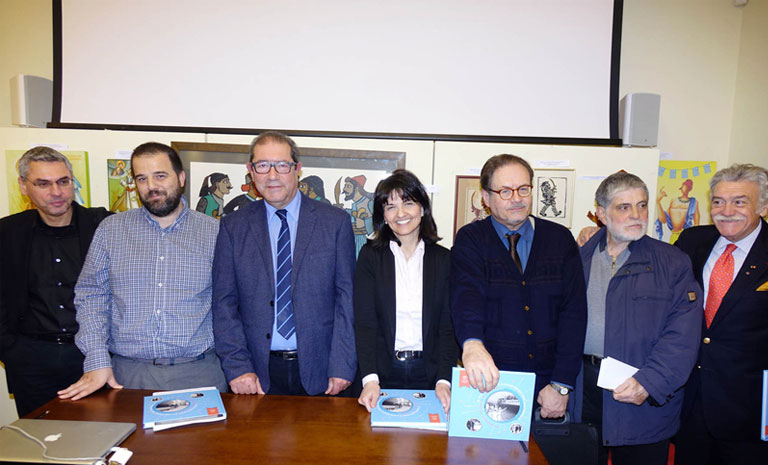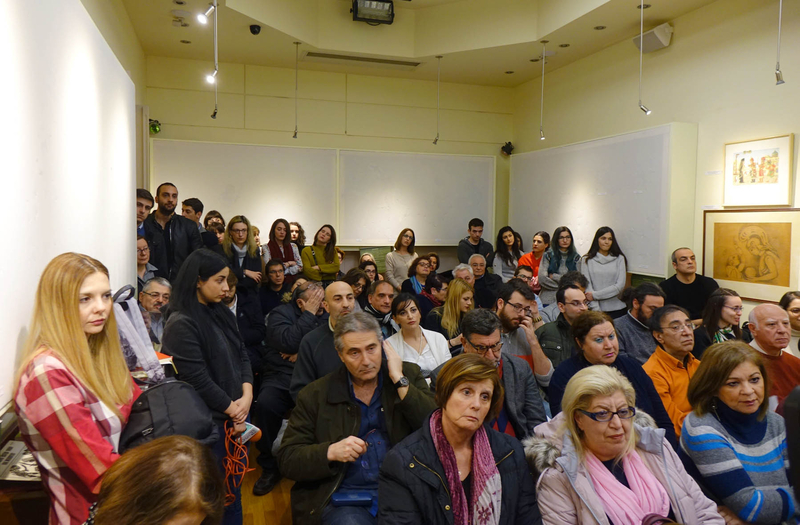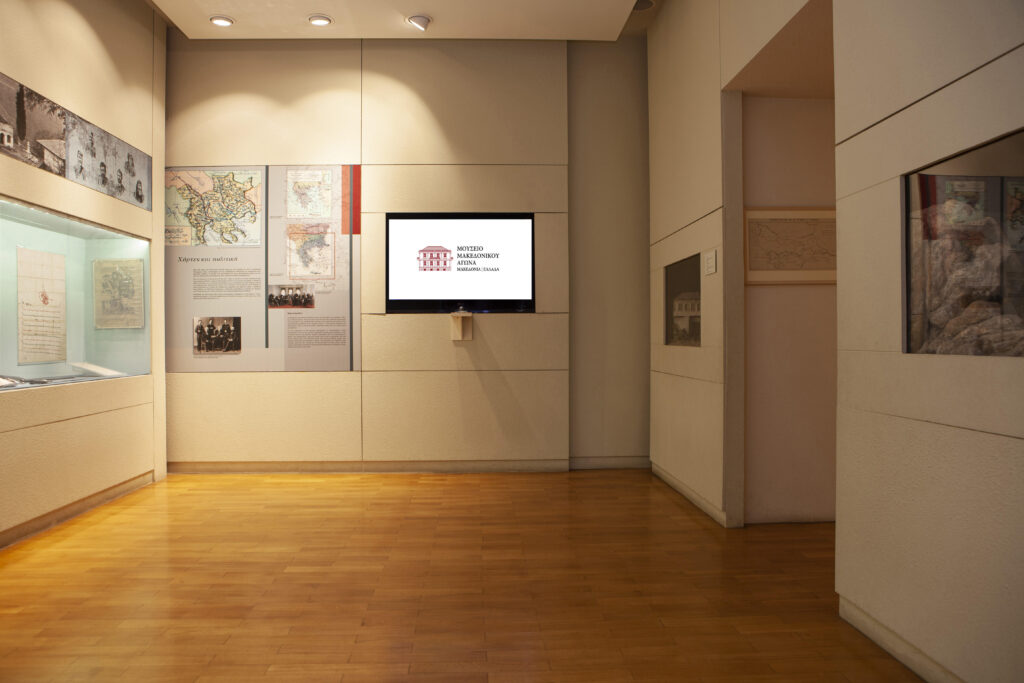Workshop on “The Jews of Thessaloniki: From the Interwar to the Holocaust”
Events 17 January 2018

Museum of the Macedonian Struggle
Extremely interesting were the contributions presented at the workshop organized on Wednesday 17 January 2018 by the Association “The Friends of the Museum of the Macedonian Struggle” in the Al. Haitoglou Hall of the Museum on the topic “The Jews of Thessaloniki: From the Interwar to the Holocaust”, on the occasion of the upcoming Memorial Day of the Greek Jewish Martyrs and Heroes of the Holocaust.
Among the speakers, Mr. Evangelos Hekimoglou, curator of the Jewish Museum of Thessaloniki and doctor of economic history, spoke about 32 “Anonymous Jewish-owned companies of Thessaloniki, 1920-1940”, in the sense that their main shareholders were Jews in religion. Since the establishment of a joint-stock company required a minimum capital threshold, as Mr. Hekimoglou mentioned, it is considered certain that these 32 companies included the largest, in terms of capital, companies of the time. The companies that survived the international economic depression during the interwar period were looted during the Occupation by the German occupiers and their domestic collaborators, while many of the businessmen died in Auschwitz-Birkenau. The few that continued after the war formed the core of the reborn Jewish community of Thessaloniki.
George Antoniou, Assistant Professor at the Chair of Jewish Studies at the Aristotle University of Thessaloniki, spoke about the relationship between “Jewish community and music in the interwar period: From the Thessaloniki Conservatory to Auschwitz”. Utilizing data from the archive of the State Thessaloniki Conservatory, focused on aspects of the lives of some of the approximately 700 students of Jewish religion who attended the Conservatory in the years 1915-1943. Through the fascinating but, above all, tragic human histories of displaced and rescued students, Mr. Antoniou first of all highlighted the grimness of the Jewish displacement and also attempted to give a first answer to the important question of under what circumstances and conditions some of the displaced Thessaloniki Jews managed to survive the Nazi extermination camps.
Maria Kavala, lecturer at the Department of Political Sciences of AUTH, in her presentation on “Nazi “labor” policy in Thessaloniki (1941-1944) issues”, she placed Greece and Thessaloniki on the Nazi labor map and presented the ways and policies by which Germany attempted the ways and means by which the German government tried to solve the problem of the shortage of labor for the war industry at home as early as April 1942.
The last speaker, Mr. Stratos Dordanas, Assistant Professor of Modern and Contemporary European and Balkan History at the University of Macedonia, introduced the topic “Displaced persons from Greece: The International Tracing Service (ITS) and the surviving Jews of Thessaloniki”. Utilizing material from the rather unknown to research archive of the Inter-Allied Authorities for the Documentation of Nazi Crimes, she presented evidence related to Thessaloniki Jews who survived German extermination camps and reconstructed personal stories and family paths, as well as the overall experience of deportation and the Holocaust during World War II.
Struggles for Liberation
Permanent Exhibition



